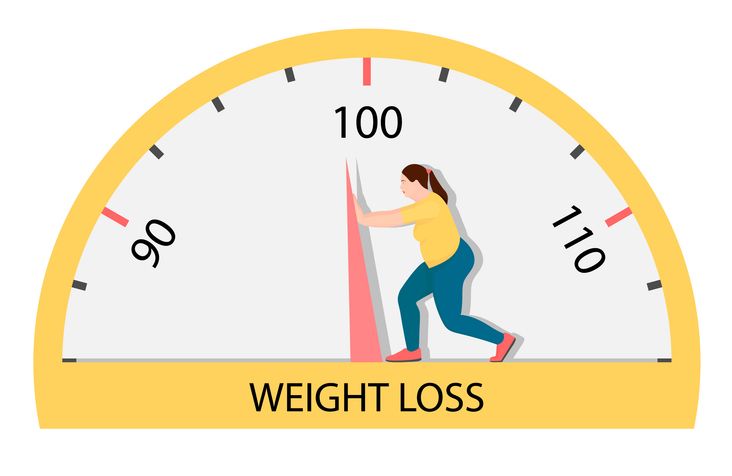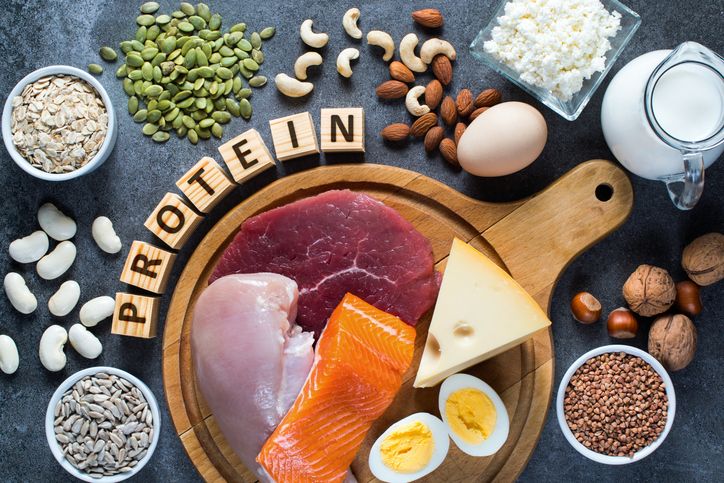
- Home
- Trend
- Weight Loss Strategies
- Acne Tips
- Hair Health Information
- Blemish Removal Tips
- Acne Scar Removal Tips
- Muscle Building Techniques
- Intimate Care Tips
- Postpartum Intimate Care
- Eye Bags Wiki
- Tips for Face Slimming
- Secret of Permanent Hair Removal
- Breast Enlargement Tips
- Cure to Snoring
- Marionette Lines
- Skin-Tightening Secrets

免費體驗
S6 Body Sculpting Treatment
1 Minute Self-Registration
Date should not be before minimal date
In the quest for a healthier lifestyle, many of us find ourselves searching for the most effective ways to lose weight fast and keep it off. Whether it’s shedding those extra pounds gained during the holidays or aiming for a complete lifestyle overhaul, the path to weight loss is often fraught with myths and misconceptions. Here, we dive into the mechanics of how your body stores fat and spotlight common pitfalls that might be hindering your progress. Plus, we’ll arm you with actionable tips to rev up your weight loss journey.
1
How Does Your Body Gain Fat?

At its core, weight gain boils down to a simple equation: calories in versus calories out. Our bodies convert the food and beverages we consume into energy. When the calories we ingest exceed those we expend through physical activities and metabolic processes, our bodies store the surplus as fat. This stored fat acts as a reserve of energy. Understanding this balance is crucial in navigating the complex journey of weight management.

2
6 Sneaky Habits That Can Sabotage Your Weight Loss Goals

The journey to losing weight can often feel like navigating a minefield. Unexpectedly, it's the small habits and choices that can significantly derail our efforts. Let’s uncover six sneaky habits that might be expanding your waistline without your notice.
Not Tracking What You Eat
The idea here isn't to obsess over every calorie but to foster awareness of your consumption habits. Even foods labeled as healthy can be dense in calories, and it’s all too easy for casual snacking to accumulate beyond our notice. Leveraging apps to track your intake or keeping a simple food diary can illuminate surprising calorie sources and help steer your diet in the right direction.
Refined Carbs Can Impact Your Weight
Carbohydrates are not the enemy, but the type of carbs you choose plays a pivotal role in your weight loss efforts. Refined carbohydrates, such as those found in white bread and sugary confections, are metabolized swiftly, causing spikes in blood sugar and subsequent cravings. In contrast, complex carbohydrates from whole grains, fruits, and vegetables release energy more gradually, aiding in sustained satiety and energy levels.
Sugary Drinks and Processed Foods: The Double Whammy
This duo forms a potent obstacle to weight loss. Beverages high in sugar contribute empty calories and lead to weight gain, while processed foods pack in unhealthy fats, added sugars, and sodium, which can make you exceed your calorie needs without feeling full. Choosing whole, unprocessed foods over their sugary and refined counterparts can significantly impact your weight management efforts.
Mindful vs. Mindless Eating
The modern lifestyle often encourages eating as a secondary activity – something we do while engaged with screens or other distractions. This detachment from the eating experience can lead to consuming more than our bodies need, as we lose touch with our hunger and satiety signals. Eating mindfully, in a calm and focused manner, allows us to enjoy our food more and recognize when we are satisfied.
Unstructured Eating Patterns
Irregular eating habits, such as skipping meals or going long periods without food, can disrupt your metabolic rhythm and lead to poor food choices or overeating later on. Establishing a regular pattern of meals and snacks ensures a steady supply of energy and helps prevent extreme hunger that can lead to overindulgence.
Ignoring Your Body's Fullness Cues
Our bodies have a natural mechanism to signal satiety, yet many of us have learned to ignore these cues, often out of habit or due to cultural practices like finishing everything on our plate. Paying attention to these signals and stopping when you're comfortably full can prevent the excess calorie intake that leads to weight gain.
- Green Tea for Weight Loss: 4 Health Benefits + How to Drink It for Slimming Results!
- Experiencing Bigger Butt And Lower Body? Here's How to Reduce Hip Fat Through Diet and Exercise!
- Weight Loss App: Your Virtual Companion in Achieving Your Fitness Goals
- Can Sweating Lose Weight? Experts Debunk the Myth of “Sweat = Fat Burn”! Here’s the Real Signal Your Body Is Burning Fat
3
Is Fast Weight Loss Possible?

In a world where instant results are often glorified, the allure of fast weight loss can be irresistible. However, the paths leading to rapid weight shedding, such as crash diets and extreme workout regimes, are fraught with pitfalls that can do more harm than good. Let’s peel back the layers on why these quick fixes might not be the golden ticket to weight loss we often hope for.
The Perils of Crash Diets
At first glance, crash diets promise a swift plummet on the scales, but the hidden costs to your health and well-being can be steep:
Nutrient Deficiencies
Crash diets typically involve severe calorie restriction or the elimination of entire food groups. This approach can lead to significant nutrient deficiencies. For instance, cutting out dairy without adequate substitutes can result in insufficient calcium and vitamin D levels, vital for bone health. Similarly, avoiding fruits and vegetables can deprive the body of essential vitamins, minerals, and fiber, crucial for normal bodily functions and overall health.
Muscle Loss
During a crash diet, the drastic reduction in calorie intake forces the body to seek alternative energy sources. With not enough dietary calories to convert into energy, the body begins to break down muscle tissue to fuel its activities. This process, known as catabolism, not only reduces muscle mass but also slows down the metabolism since muscle tissue burns more calories at rest than fat tissue. The result is a counterproductive effect on weight loss over time, as a slower metabolism means the body burns fewer calories naturally.
The Yo-Yo Effect
Yo-yo dieting, or weight cycling, involves losing weight through extreme dietary restrictions, then gaining weight back, and often adding more, once normal eating resumes. This pattern is not only psychologically discouraging but also physiologically damaging. Rapid weight loss typically involves the loss of water weight and muscle mass rather than fat. When weight is regained, it's mostly fat, since eating normally doesn't necessarily restore muscle mass. This shift in body composition can make subsequent weight loss attempts more difficult, as a higher fat-to-muscle ratio decreases metabolic rate. Furthermore, studies have indicated that yo-yo dieting can lead to a cycle of weight gain that's increasingly hard to reverse, potentially leading to long-term metabolic changes and increased risk of cardiovascular diseases.
Health Risks
Crash diets can pose immediate risks such as dehydration and electrolyte imbalances, which can affect heart rhythm and muscle function. Over the long term, they can increase the risk of developing eating disorders, gallstones, and even heart disease. The strain of rapid weight loss can also weaken the immune system, making the body more susceptible to infections.
The Dangers of Extreme Workout Regimes
While pushing your limits in the gym can feel empowering, there's a fine line between challenging yourself and overdoing it:
Injury Risks
Excessive exercise, especially without proper form or preparation, can lead to acute injuries like sprains and strains, as well as chronic problems such as stress fractures and tendinitis. The risk is particularly high when people suddenly change their activity levels without giving their bodies time to adapt.
Overtraining Syndrome
Overtraining occurs when the intensity and volume of exercise exceed the body's recovery capacity, leading to a decline in performance. Symptoms include prolonged fatigue, poor sleep quality, and increased susceptibility to infections. This condition can also lead to hormonal imbalances, affecting the body's ability to regulate metabolism and recover from physical stress.
Psychological Stress
Intense workout routines can also exert considerable psychological stress, leading to symptoms of anxiety and depression. The pressure to perform or achieve certain physical standards can exacerbate stress levels, detracting from the overall benefits of exercise on mental health.
Holistic Health Neglect
An excessive focus on physical training can result in the neglect of other vital components of health, such as nutrition, hydration, and rest. Proper recovery practices, including sleep and stress management, are essential to balance the physical demands of intense exercise, ensuring sustainable health and fitness progress.
The Compound Risks of Combining Crash Diets with Extreme Workouts
Despite the temptations of quick fixes, the consensus among healthcare professionals is clear: a gradual, sustainable approach to weight loss is far safer and more effective for long-term health. While shedding 10 kg (about 22 lbs) in a week might sound appealing, it's a perilous endeavor that can inflict lasting damage on your body.
While you can’t lose like 10 kg in 1 week without bringing some serious damages to your health, there are many hacks to losing weight more sustainably without much workout efforts. Just adjust a few aspects of your dieting and living habits, and you will be steadily losing half a kg per week with ease!

4
14 Easy Tips to Healthy Weight Loss With Ease!

Embarking on a weight loss journey doesn’t require drastic measures. By integrating some straightforward adjustments into your daily life, you can make significant strides towards your health goals. Here are 14 easy-to-follow tips that can help you lose weight effectively and sustainably.
Power Up with Protein
Proteins are the building blocks of life, playing a crucial role in almost all biological processes. A high-protein diet can boost metabolism, reduce appetite, and change several weight-regulating hormones. Protein works by increasing the levels of satiety hormones while reducing the hunger hormone ghrelin, making you feel fuller for longer. This, in turn, can lead to a reduction in calorie intake. Studies have shown that increasing protein intake to 25-30% of calories can cut cravings by 60%, reduce the desire for late-night snacking, and cause weight loss of nearly one pound (0.45 kg) per week without intentional restrictions on anything .
Embrace Whole Foods
Whole foods are those that have been processed or refined as little as possible and are free from additives or other artificial substances. They are packed with vitamins, minerals, quality fiber, and antioxidants. Diets rich in whole foods, including fruits, vegetables, whole grains, nuts, seeds, and lean proteins, can contribute significantly to a feeling of fullness and satisfaction, helping to prevent overeating. Whole foods tend to be naturally lower in calories compared to processed foods, which often contain added sugars and unhealthy fats that contribute to weight gain .
Hydration is Key
Water is not only crucial for your health but also plays a key role in weight loss. Drinking water can boost the number of calories you burn, known as resting energy expenditure. In adults, resting energy expenditure has been shown to increase by 24-30% within 10 minutes of drinking water, lasting at least 60 minutes . Drinking water before meals can also lead to reduced calorie intake, especially for middle-aged and older individuals, by making you feel full .
Tame the Sweet Tooth
Added sugars, especially from sugary drinks, are a significant contributor to unnecessary calorie intake in many people’s diets. High intake of added sugar is linked to some of the world's leading diseases, including heart disease, type 2 diabetes, obesity, and fatty liver disease . Reducing your consumption of added sugars can cut calories and improve your health, potentially leading to weight loss. Opting for natural sweeteners or enjoying the natural sweetness of fruits can satisfy your sweet tooth without the negative health impacts associated with added sugars.
Coffee and Tea: Beverages with No Added Sugar
Both coffee and green tea can have a place in your weight loss strategy. Caffeine, found in both coffee and tea, can enhance physical performance by mobilizing fatty acids from the fat tissues, making them available for energy and increasing your metabolism. Moreover, green tea contains catechins, natural antioxidants that may improve fat burning and are linked with weight loss and weight maintenance. A meta-analysis of studies suggests that caffeine and green tea have a small but positive effect on weight loss and weight management .
Fruits and Vegetables: Fiber Up for Feeling Full
Dietary fiber plays a crucial role in weight management by enhancing feelings of fullness. Foods high in fiber, such as fruits, vegetables, and whole grains, do not add many calories to your diet but increase the volume of your meals, making you feel fuller without overeating. The process of digesting fiber also requires energy, contributing to a slight increase in your metabolism. Additionally, fiber helps regulate blood sugar levels, preventing the spikes and crashes that can lead to cravings and overeating.
Probiotics for a Happy Gut
The balance of gut flora has a profound effect on weight management. Probiotics, the beneficial bacteria found in yogurt, kefir, and other fermented foods, can enhance gut health, potentially aiding in weight loss and fat reduction. These microorganisms may influence weight by enhancing the barrier function of the intestinal lining, reducing inflammation, and even affecting how the body metabolizes nutrients and stores fat. Research has shown that people with a diverse gut microbiota tend to have a healthier weight, highlighting the role of probiotics in weight management.
Portion Patrol
One of the simplest strategies for preventing overeating is to control portion sizes. Using smaller plates can naturally help reduce the portions you serve yourself, tricking your brain into feeling satisfied with less food. Being mindful of serving sizes and learning to listen to your body's signals of hunger and fullness can help you avoid consuming more calories than you need.
Plan Your Meals
Meal planning is a powerful tool for weight loss. By deciding in advance what and when you'll eat, you can make healthier choices, resist the temptation of fast food or snacks, and ensure you're incorporating a variety of nutrients into your diet. Planning helps manage portion sizes and reduces the likelihood of impulsive eating decisions that often lead to overeating.
Explore Intermittent Fasting
Intermittent fasting (IF) is a dietary approach that alternates between periods of eating and fasting. Studies suggest that IF can be as effective as traditional calorie restriction for weight loss, possibly by regulating levels of hormones that control hunger and satiety, such as insulin, leptin, and ghrelin. However, IF may not be suitable for everyone, especially those with certain health conditions, so it's important to consult a healthcare professional before starting.
Mindful Eating
Eating mindfully means paying full attention to the experience of eating and drinking, both inside and outside the body. Mindful eating practices, such as chewing slowly and eliminating distractions at meals, can help you tune into your body's hunger and fullness signals more effectively, preventing overeating and enhancing your enjoyment of food.
Ditch the Cigarettes
Smoking cessation is beneficial for overall health and can also have positive effects on weight management. Although some people fear weight gain when quitting smoking, the boost in metabolism and overall health improvements that come with quitting can actually make it easier to lose weight and keep it off in the long term.
Catch Those Zzz's
Sleep plays a vital role in regulating metabolism and appetite. Lack of sleep can disrupt the balance of hunger hormones, leading to increased appetite and a preference for high-calorie foods. Ensuring you get enough quality sleep is an essential component of a weight loss plan.
Manage Stress Levels
Chronic stress can sabotage your weight loss efforts by triggering cravings for unhealthy foods and increasing fat storage, especially around the abdomen. Techniques such as yoga, meditation, and deep breathing can help reduce stress and its impact on your weight, making it easier to stick to healthy eating and exercise habits.
免費體驗
S6 Body Sculpting Treatment
1 Minute Self-Registration
Date should not be before minimal date
5
S6 Body Sculpting Treatment: Your Safe and Easy Weight Loss Method That Actually WORKS!

S6 Body Sculpting Treatment by Perfect Medical is a ground-breaking solution for achieving your desired body shape. This state-of-the-art, non-surgical approach offers a simple way to eliminate persistent fat without the risk of it coming back.
The treatment uses advanced bio-laser technology to directly attack and liquefy fat cells. Following this, a vacuum suction method enhances the removal of the liquefied fat through lymphatic drainage. The S6 method effectively addresses hard-to-lose fat in areas such as the waist, belly, arms, legs, and beyond.
In addition to shedding fat, the treatment's bio-laser also promotes collagen production, which tightens the skin and diminishes cellulite, resulting in a toned and attractive physique.
The S6 procedure is completely non-invasive, requiring no cuts, drugs, or injections, making it a completely safe choice. It represents not just a treatment, but also a total body transformation.
See noticeable improvements after just one session, with results that can last up to three years. Achieve distinct slimming effects in your preferred body areas with only about 10 easy and comfortable sessions.
Your ideal body is within reach. Reserve online today for a complimentary trial of the S6 Body Sculpting Treatment, including a free professional body profile evaluation.

免費體驗
S6 Body Sculpting Treatment
1 Minute Self-Registration
Date should not be before minimal date
FAQ

Is skipping meals a good strategy for losing weight?
Skipping meals is not recommended for weight loss. It can lead to increased hunger, resulting in overeating later on. Consistent meal skipping can also slow down your metabolism, hindering weight loss efforts over time.
What role does protein play in weight loss?
Protein helps with weight loss by increasing satiety, reducing appetite, and boosting metabolism. Eating a high-protein diet can also help preserve muscle mass during weight loss, leading to a higher resting metabolic rate.
Can exercise alone help me lose weight?
Exercise is a key component of weight loss, but it's most effective when combined with a healthy diet. Physical activity burns calories, boosts metabolism, and builds muscle, aiding in fat loss and improving overall health.
Are all calories the same when it comes to weight loss?
Not all calories are created equal. Foods differ in how they affect your body and metabolism. Calories from nutrient-rich foods can support weight management and overall health, whereas empty calories from sugary and processed foods can hinder weight loss efforts.
Can stress make it harder to lose weight?
Yes, stress can negatively impact weight loss. It triggers the release of cortisol, a hormone that can promote fat storage and increase appetite, particularly for unhealthy foods. Managing stress through relaxation techniques can aid in weight loss.








